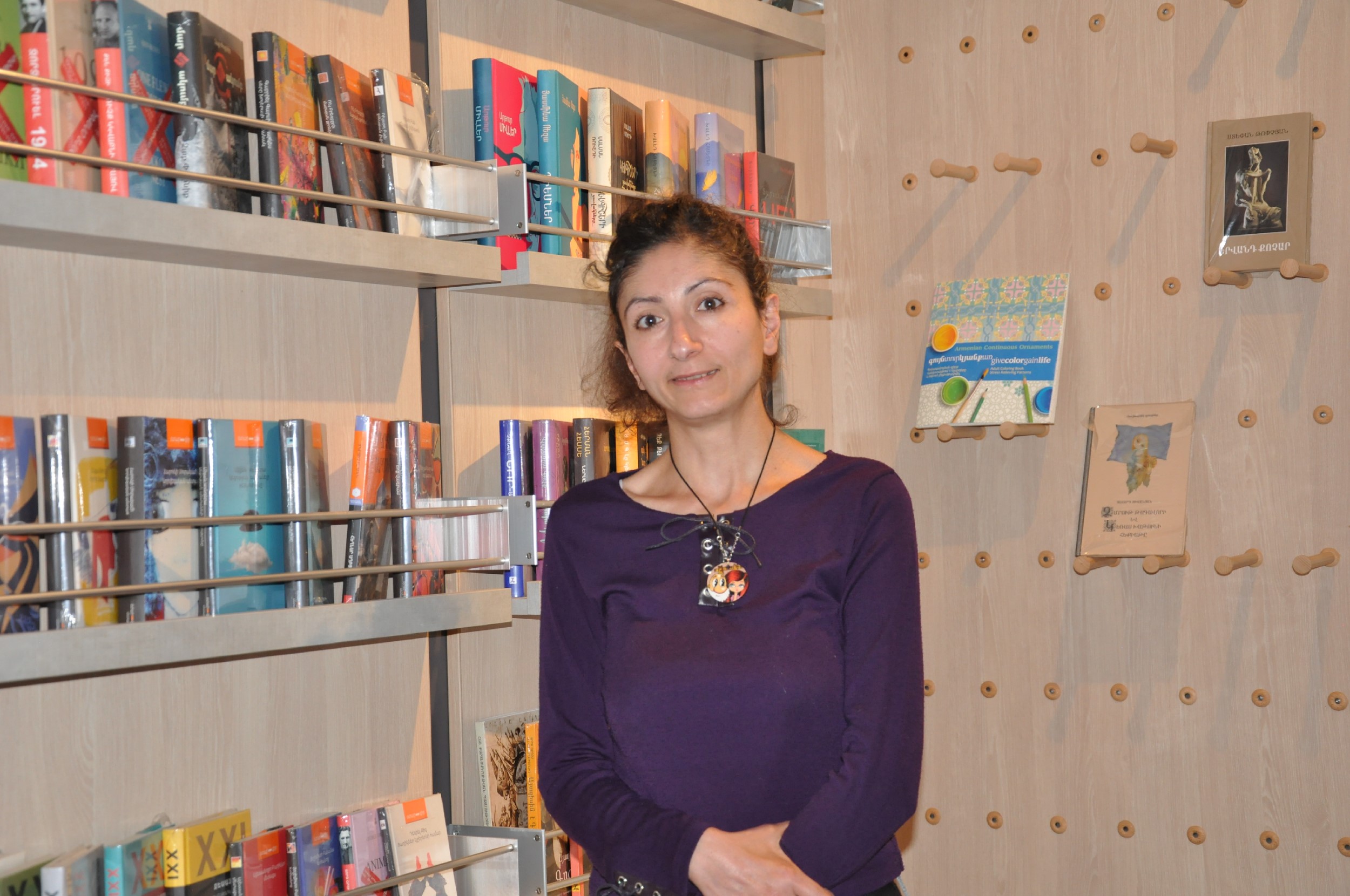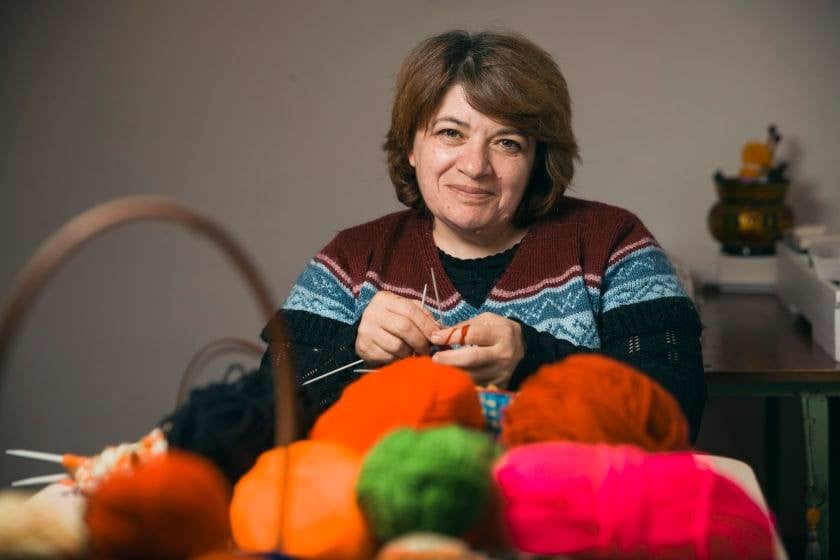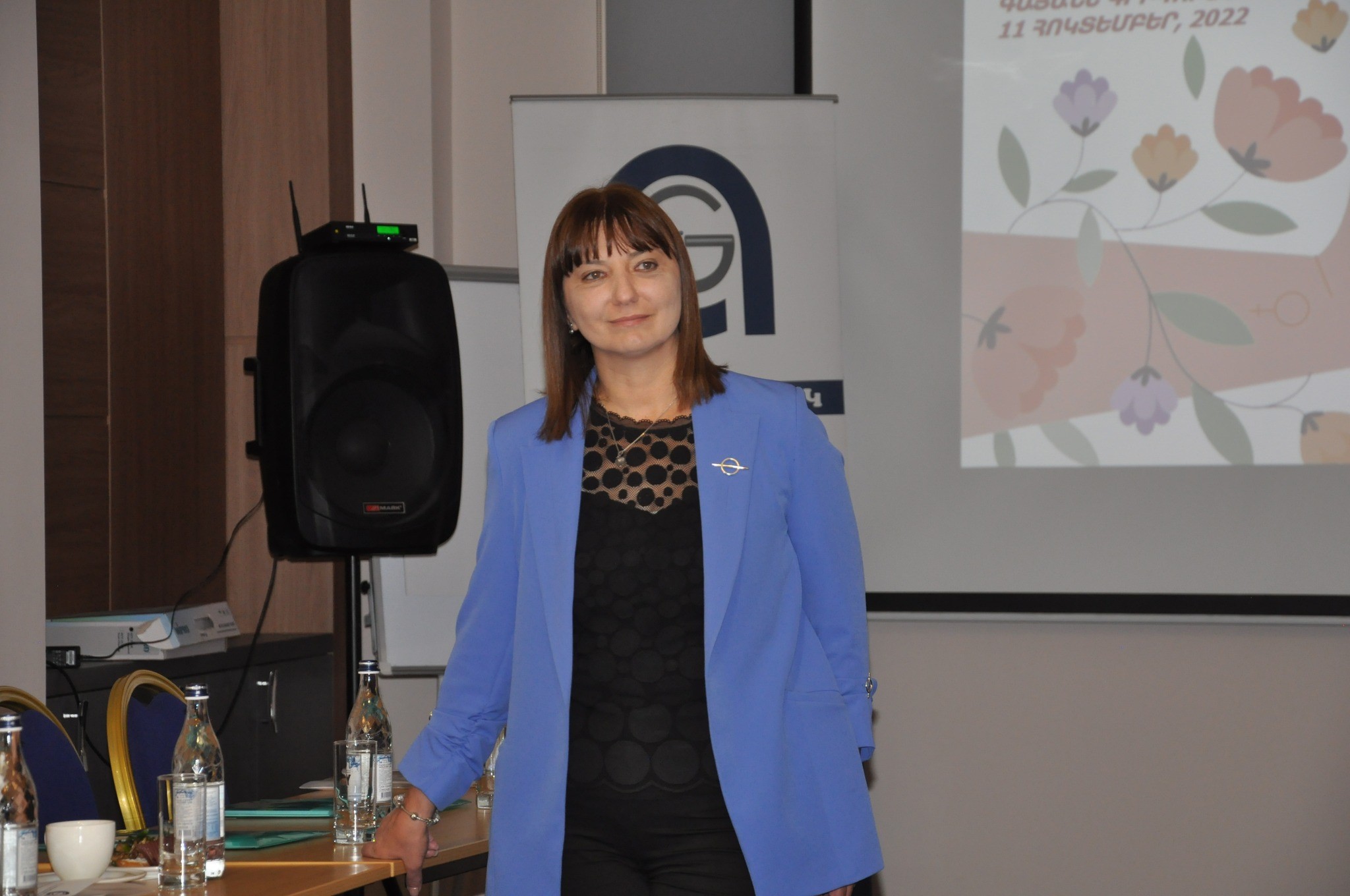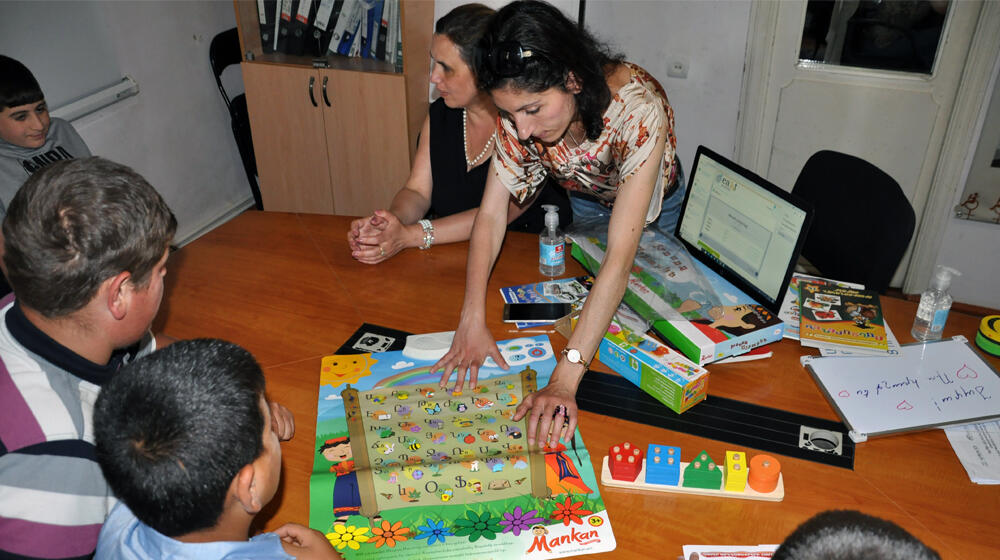Eliza Melkonyan, 40, from Gyumri, helps children with special educational needs attain life skills and literacy at the “Independent Life” Resource Center of “Agate” NGO.
As a woman with multiple disabilities, Eliza knows how important it is for these kids to grow independent, especially in Armenia, where It is tough for people with disabilities to find an occupation. “I knocked on many doors previously, but they remained closed,” she says․
Eliza has overcome many challenges by participating in capacity-building training conducted by the “Agate” NGO within the “EU 4 Gender Equality: Together against gender stereotypes and gender-based violence” programme in December 2020.
“It is necessary to empower people with disabilities, encourage them to trust their powers and discover their strengths and talents. That was exactly what happened to me during the training. At the beginning of the training, I was afraid I might be unable to knit the bag with my weak hand. But when I sold my first work, I was happy like a child. The fact that I could turn my hobby into a source of income gave me immense strength,” she says.

Following the course, during which she achieved this significant milestone, “Agate” NGO offered Eliza to work as an assistant teacher at their Resource Center.
“On the first day, I was afraid I might be unable to work. But then I remembered the conversations about self-belief during the training, and I quickly overthrew that concern. When I think about my ability to educate kids and my courage to become independent, I realize how happy I am.”
Overall, 32 women and girls with disabilities participated in the remote training, organized within the “EU 4 Gender Equality: Together against gender stereotypes and gender-based violence” programme, co-funded by the European Union, UN Women, and the UNFPA and implemented jointly by UN Women and UNFPA in six EaP countries.

One of the participants, Manushak Nersisyan, 52, from Goghovit, has mobility disabilities. She has lived in the village for a long time and was self-educated. Manushak participated in the training as she desired to master the skills she had learned from her mother more systematically.
"The role of "Agate" and other non-governmental organizations was influential in my life. With their support, little by little, I started having successes and formed my business," she says.
Due to the Covid-19 pandemic, Manushak's business faced difficulties. She then participated in this capacity-building training and discovered new directions to move forward. "The business might have closed down if it weren't for this remote learning opportunity. During them, I gained many new skills, I got acquainted with the modern technologies and tools," emphasizes Manushak.
After gaining new knowledge and skills, Manushak realized she could enforce new projects and applied for a grant program. Her business plan was successful, and she received 600 Euros to produce and sell linen items. "I learned how to make new connections with other people in business and develop directions I didn't imagine before. Most important, after establishing a sewing production, I started to earn money and become more independent," Manushak says.
Now Manushak is studying at a school for social entrepreneurs. For large orders, she involves other women in the community who are in need or have disabilities. Manushak sells her works on social media platforms, in stores, and at exhibitions. During the capacity-building training, the idea was born to produce eco-bags, which now are the most requested products that Manushak sells. They are recycled products from old, worn denim and carry the environmental "second life to old clothes" message. Manushak also sells crocheted bags.

Gayane Grigoryan, program manager at the "Agate" Rights Defense Center for Women with Disabilities, says that this course significantly impacted the participants' lives.
They acquired and developed new handcrafting skills, received 51 group and individual psychological consultations, and participated in 8 capacity-building training courses. "All these improved their quality of life. Many turned the developed skills into small businesses," says Gayane Grigoryan.
The project also created an information platform for women and girls with disabilities, facilitating communication on health, education, violence, government support, and exchange programs.
In the framework of the "EU 4 Gender Equality: Together against Gender Stereotypes and Gender-Based Violence" programme, "Agate" is implementing another project. The "I can break stereotypes in my community" project is aimed at awareness-raising among mass media representatives, journalists and journalism students.
***
This publication was produced with the financial support of the European Union within the framework of the “EU 4 Gender Equality: Together against gender stereotypes and gender-based violence” programme, co-funded by the European Union, UN Women, and the UNFPA and implemented jointly by UN Women and UNFPA in six EaP countries. Its contents are the sole responsibility of UNFPA and UN Women and do not necessarily reflect the views of the European Union.
Mari Mkhitaryan/UNFPA Armenia


